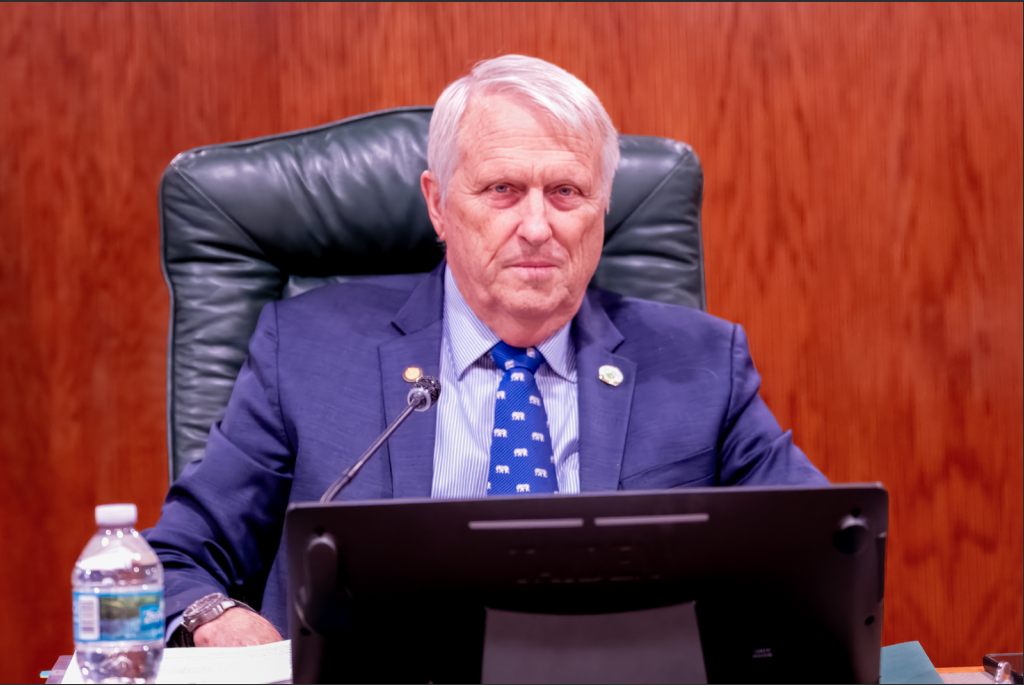
Key Points
Apopka Mayor Bryan Nelson plans to travel to Tallahassee on Tuesday, Oct. 14, to meet with state lawmakers about controversial legislation that has riled local municipalities around the state.
The Legislature passed SB 180 during the 2025 session with the focus on helping Floridians rebuild after hurricanes. But a last-minute amendment to the bill nullified land-use regulations and comprehensive plans adopted from Aug. 1, 2024, to Oct. 1, 2027.
The city of Apopka is monitoring how other local governments respond to Senate Bill (SB) 180, especially regarding the lawsuit that 25 Floridian municipalities and counties – including Orange County – filed on Sept. 29 challenging the law’s legality.
“I think we’re going to kind of monitor what the other cities and counties are doing, and obviously we want to help where we can, and make sure we get some clarifications on what the true intent is,” Mayor Bryan Nelson said in an Oct. 3 phone interview with the Chief. “From what I gather, they’re going to do a tweak to the bill that will make it less onerous on municipalities. So, we’re hoping that that happens this [coming] legislative session.”
Weiss Serota Helfman Cole + Bierman filed the complaint on Sept. 29 in the Second Judicial Circuit Court in Leon County. The town of Windermere is the only Orange County municipality that is among the plaintiffs.
At the Oct. 1 Apopka City Council meeting, Nelson announced that due to SB 180, the state rejected the city’s revised comprehensive plan, which is what prompted his Oct. 14 trip to Tallahassee.
Later at the meeting, Vice Mayor Diane Velazquez asked city attorney Cliff Shepard whether the city would join the SB 180 lawsuit.
Shepard said the city could approach the lawsuit two ways: join it, which would cost a flat fee between $10,000 and $20,000, or use a lobbyist to influence lawmakers.
Shepard cited two issues most cities have with the bill: 1) It was supposed to be about storm recovery but also applies to developments that a storm never impacted, and 2) the state could stop local governments from passing moratoriums on developments until at least 2027.
“If you all want to have a discussion about which way you want to go, right now, we’re not doing either thing, unless we are doing it through lobbyists, because I’m not a lobbyist,” Shepard said.
Velazquez said she understood that Nelson had mentioned it to state Rep. Doug Bankson, R-Apopka, and state Sen.-elect LaVon Bracy Davis, D-Ocoee, earlier in the meeting, after they recapped the 2025 legislative session.
“I feel like if we can join the cities, it becomes a much stronger front for Tallahassee to realize how it negatively is impacting all the local municipalities,” Velazquez said.
In the Oct. 3 phone interview, Nelson said his original purpose for traveling up to Tallahassee on Oct. 14 was to see his friend get selected Florida Senate president. He was referring to the Republican Caucus that will convene that day to select state Sen. Jim Boyd, R-Palmetto, as Senate President-designate for the 2026-28 legislative term.
Nelson wants to take the opportunity that same day to convince lawmakers about changing SB 180’s retroactivity and the bill’s language so it could better clarify the limitations it imposes on community development documents.
“We just need some clarification on what ‘restrictive or burdensome’ means [in the bill] because that can mean different things to different people,” Nelson said.
According to the complaint, the plaintiffs say the SB 180 amendment removes local governments’ right to manage growth and development in their communities.
“SB 180 violates the Florida Constitution and Florida law because it contains more than ‘one subject and matter properly connected therewith,’ has a defective ballot title, is a general law that classifies counties and municipalities on a basis not reasonably related to the subject of the law, constitutes an improper unfunded mandate on the Local Governments, conflicts with Florida’s Community Planning Act, and intrudes on Home Rule Powers,” the lawsuit said.
Suggested Articles
No related articles found.



